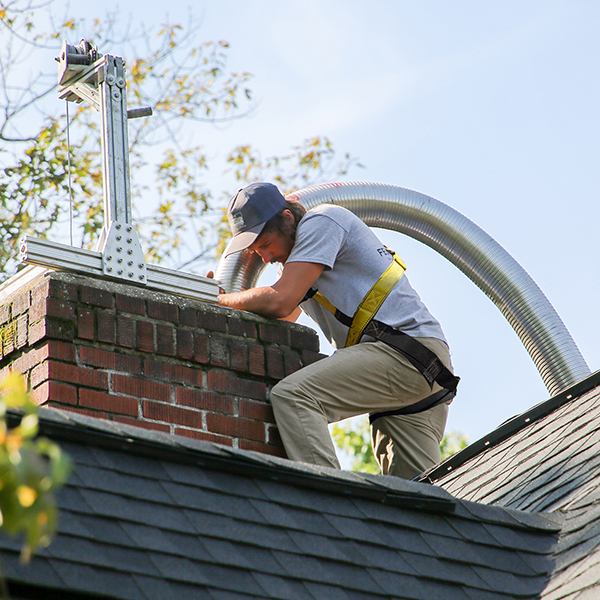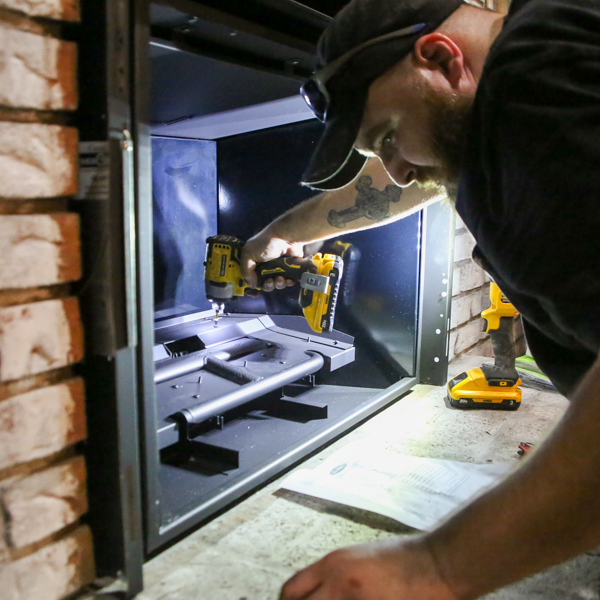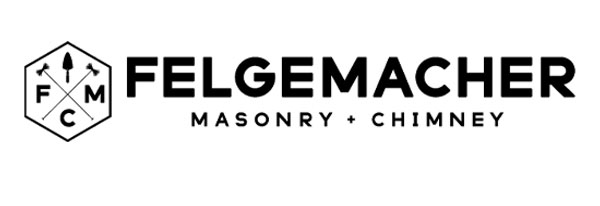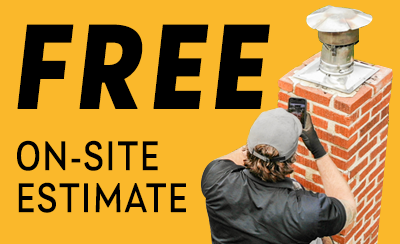Can You Use A Chimney Without A Liner?
As one of the oldest cities in New York, there are older and historic homes in Rochester and throughout Western New York that predate modern building codes and are without a chimney liner. To this day, some of these older homes still have an unlined chimney. Today, however, many building codes require a chimney liner. In fact, the 2020 Mechanical Code of New York State, Section 801.16, states that “masonry chimneys shall be lined.” The regulation further stipulates that the chimney liner must be compatible with the connected appliance per the manufacturer’s instructions. Therefore, here in the State of New York, you cannot use a chimney without a liner.
The Purpose of a Chimney Liner 
The chimney liner reduces the risk of fire and exposure to toxic fumes when using your fireplace, heating stove, or furnace. The chimney liner contains the heat and flames inside the flue, insulates the masonry, and helps improve the chimney draft. It also helps protect the masonry from moisture and corrosive combustion gases damaging the brickwork.
Why You Shouldn’t Use a Chimney Without a Liner
First, let’s look at the structure of your chimney. When you light the fire in your fireplace, where does all the smoke and combustion gases go? That’s right; it goes straight up the flue where it’s expelled from your home. First, let’s look at the structure of your chimney. When you light the fire in your fireplace, where does all the smoke and combustion gases go? That’s right; it goes straight up the flue where it’s expelled from your home. Second, the heat inside your fireplace can get very intense, with temperatures inside the chimney soaring up to 1,500°F! That’s a lot of heat for an unlined masonry to absorb. Third, if there is a chimney fire or any cracks in the brick and mortar, that heat can quickly transfer to combustible materials like the attic, roof deck, ceiling, and walls, which can cause a house fire. Your family and pets may also be exposed to irritating smoke and toxic carbon monoxide gas. Third, if there is a chimney fire or any cracks in the brick and mortar, that heat can quickly transfer to combustible materials like the attic, roof deck, ceiling, and walls, which can cause a house fire. Your family and pets may also be exposed to irritating smoke and toxic carbon monoxide gas.
Types of Chimney Liners
There are essentially three types of chimney liners typically installed in masonry chimneys.
Clay Tile: Most masonry chimneys have been lined with terra cotta or clay tiles since the early 1900s. While clay tiles liners are an inexpensive option, they are inefficient in heat distribution. They are also more susceptible to cracking from excessive temperatures, moisture, and corrosion, thus requiring more frequent repairs or replacement. As a result, clay tile liners are not recommended for gas fireplaces or heating appliances.
Cement: Cast-in-Place cement flue liners are poured directly into the flue to create a permanent liner that strengthens, insulates, and protects the flue. While they are not an inexpensive option, they can reline any flue, regardless of shape, size, or fuel, including wood, oil, and gas. For this reason, cement flue liners are often recommended for relining chimneys in older and historic homes.
Metal: Stainless steel liners and aluminum liners are often used when relining or upgrading an existing chimney. Stainless steel liners may be rigid or flexible and are suitable for use with wood, gas, or oil heating appliances, like fireplaces, heating stoves, and furnaces. Aluminum chimney liners are a less expensive metal liner alternative but can only be used for some medium-efficiency gas heating appliances.
 Chimney Liner Installations & Repair in Western New York
Chimney Liner Installations & Repair in Western New York
Whether you need a new chimney liner or are repairing or relining an existing chimney, the certified chimney technicians at Felgemacher Masonry & Chimney will recommend the correct type of liner for your heating appliance that complies with NYS building and mechanical codes.
Call 585-308-4914 or 716-907-4914 or visit us online to schedule an appointment today!





